Can diabetics eat plums?
Plums are juicy summer fruits that are sweet when ripe and sour when unripe. Plums are high in fiber and low in sugar. According to research, 100 grams of plums contain about 16 grams of sugar, which is classified as having a low glycemic index and does not increase blood sugar levels.
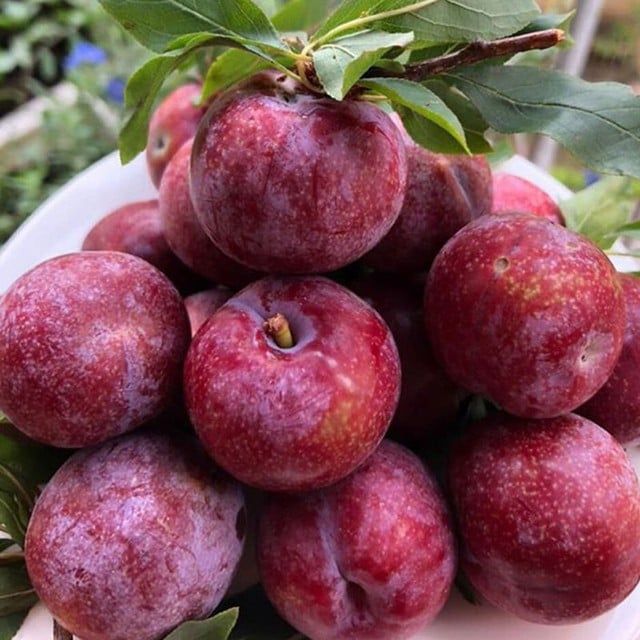
Illustration
Potassium in plums also helps control blood pressure by eliminating sodium when the patient urinates, reducing stress on blood vessel walls, and limiting the risk of complications from diabetes.
One cup of sliced plums (100 grams) can meet about 8% of your body's fiber needs, which slows digestion and prevents blood sugar spikes.
This fruit is also rich in prebiotics - plant fiber that nourishes good bacteria in the intestines, helping to stabilize and balance the intestines, which plays an important role in preventing and improving diabetes. Regular consumption of plums can promote the body's production of adiponectin, a hormone that helps regulate blood sugar levels.
Red and purple plums, such as the red plum, contain additional antioxidants called anthocyanins and phytochemicals. These antioxidants and nutrients help control the symptoms of type 2 diabetes. In addition, antioxidants also help protect the body against cell and tissue damage that can lead to diabetes, Alzheimer's, Parkinson's, and cancer.
How to eat plums to be good for diabetics?
Sharing on Nhip Song Viet, former colonel, general practitioner Bui Hong Minh (Former President of the Ba Dinh Oriental Medicine Association, Hanoi) said that plums are also a friendly fruit for people with high blood sugar as well as diabetics. Oriental medicine even considers plums as one of the top fruits for controlling blood sugar.
Because of its sour taste, plums are not easy to eat for many people. To make it easier to consume plums, you can juice them, make yogurt, plum smoothies, or eat them in salads with other fruits.

Illustration
You should choose the right type of plum that is ripe but not yet red and soft. The reason is that when the plum is red, it will have a large amount of sugar. If you choose to eat or drink red ripe plum juice, you will accidentally take a large amount of sugar into your body. Instead of lowering blood sugar, plums become the culprit that causes blood sugar to spike very dangerously.
Be careful not to eat plums with too much salt or sugar because it can affect blood sugar and blood pressure.
To prevent diabetes, how much plum should you eat?
According to nutritionists, if you eat too many plums at once, your health may be in danger. "Plums contain a lot of acid that can break down Ca-P, protein in the body, eating too much is not good," experts say.
In addition, eating too many plums can also cause acne and rashes, especially for those with a hot body. In particular, pregnant women have a hotter body temperature than normal, so eating too many plums can cause rashes, which is harmful to the health of the mother and fetus.
Therefore, no matter who you are, you should not eat too many plums. According to experts, you should only eat 5-10 plums/day.
4 groups of people are advised not to eat plums
People with stomach disease
Plums are sour fruits, containing high acid content that can affect the stomach and tooth enamel, especially in children. People with stomach problems are advised not to eat too much because it will make the condition worse.
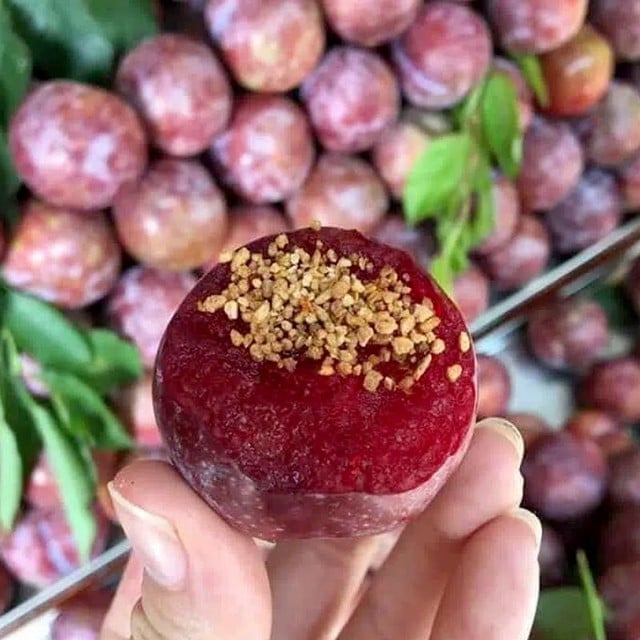
Illustration
People with kidney disease
The high amount of oxalate in plums can hinder the body's absorption of calcium. This will cause precipitation in the kidneys, which over time can cause kidney stones and bladder stones. It is recommended that people with kidney disease or a family history of this disease should limit or avoid eating it.
People with heat in the body
Oriental medicine also confirms that eating too many plums can cause internal heat, generate heat and cause acne in the body. Pregnant women often have a hotter body temperature than normal people, so they should avoid eating plums to avoid rashes or affect the health of mother and baby.
Person preparing for surgery
Although rich in nutrients, plums can interfere with the effects of some medications when consumed in large amounts. Due to plums’ blood sugar-lowering effects, people who have just undergone surgery should not consume plums. Doctors recommend that patients stop eating plums 2 weeks before surgery.
Why should you soak plums in diluted salt water before eating?
According to Associate Professor, Dr. Nguyen Thi Lam (Former Deputy Director of the National Institute of Nutrition), many people think that just washing plums with clean water is enough to ensure food hygiene and safety.
In fact, soaking plums in diluted salt water will ensure much more safety. This not only washes away dirt and chemicals that remain on the plums but also reduces the risk of acne attacks. Because the source of dirt and residual chemicals left on the plums is also the factor that causes you to have very annoying acne phenomena.
Therefore, it is best to soak plums in diluted salt water for 15-20 minutes to ensure that all dirt and chemicals on the plums are washed away, limiting acne attacks.
Source: https://giadinh.suckhoedoisong.vn/khong-chi-ngua-benh-tieu-duong-an-man-theo-cach-nay-con-tot-hon-thuoc-bo-172240524143833764.htm





![[Photo] Prime Minister Pham Minh Chinh chairs conference on anti-smuggling, trade fraud, and counterfeit goods](https://vphoto.vietnam.vn/thumb/1200x675/vietnam/resource/IMAGE/2025/5/14/6cd67667e99e4248b7d4f587fd21e37c)




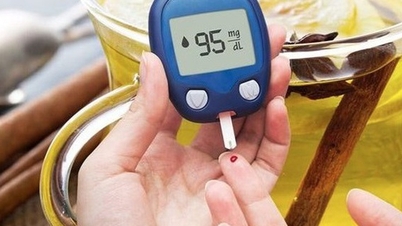






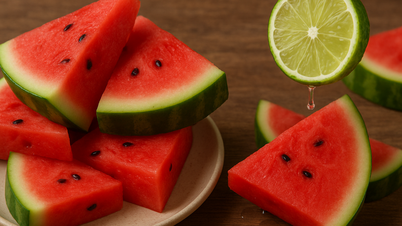

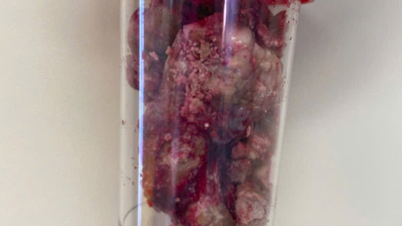








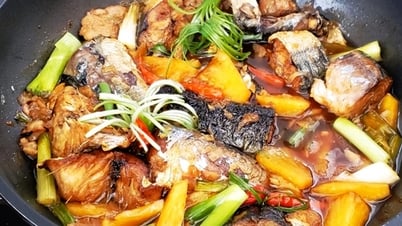

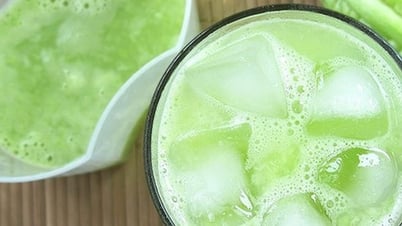

































































Comment (0)